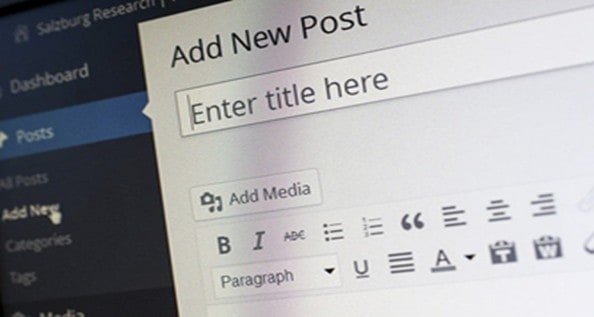Millions of people have their own blog these days, with many of those earning money from the content they produce. Blogs are big business, and there are plenty of entrepreneurs who have built their blogs up to the point where they have a team of people working with them

Whether you’re a seasoned blogger or someone starting out, it’s vital to protect your creation from hackers. Today, cybercriminals have many ways of breaking into blogs and stealing, erasing, or locking data, crashing systems, and causing other issues. Take steps to keep those with nefarious intentions out of your blog software ASAP.
Use Security Software
Start by installing quality, comprehensive security software onto your computers to protect them from cybercriminals. Choose a product that will cover you against all sorts of different hacker threats, such as spam, spyware, viruses, ransomware, and other malware and attacks. Plus, it pays to utilize cloud security software so that all your cloud-based data and services get protected from attacks and breaches, too.
Another security step is to let a firewall help keep hackers at bay. Most computers come with firewalls already installed on them these days, so you may not even need to buy one. Double-check to see if the product on your device is activated, though, as it could need switching on. Firewalls are helpful because they act as another layer of security, especially against those trying to break in via your internet connection.
Set Up Decent Passwords
Passwords are crucial, too. Protect every device and software program you access your blog from with proper codes that hackers won’t be able to guess and use to break in. You’ll need a password on your blog software, computer, modem (to protect the Wi-Fi connection), email account, apps, plugins, etc.
Effective codes contain a selection of numbers, upper-case and lower-case letters, and symbols. Choose minimum eight-character-long passwords, and try to use different ones for various machines and accounts too. That way, if a cybercriminal breaks into one, they can’t access everything else.
Keep Software Updated at All Times
Always take note when you see update alerts pop up on your screen. While the notifications that new versions of programs are available can seem annoying if you have your mind on writing or other tasks, they’re helping you. Pay attention and run the latest versions of software as soon as it’s available so that you reduce the risk of a hacker attack.
Developers learn about security gaps in their creations over time and release updates to plug these holes. If you’re not running the new editions, you leave yourself more vulnerable. Set up updates to run automatically, so you don’t have to rely on your memory to make the changes. Take note of new releases of everything from blogging and security software through to operating systems, browsers, games, plugins, and apps.
Select Security-Conscious Platforms
When you choose a blogging platform, you probably focus quite a bit on price and features. However, don’t neglect security. This is another key component and something to investigate before you make your choice. If you’ve already started with a program, find out if it’s security-conscious or not. If the latter, you might need to consider moving to another hosting product. The last thing you want is a cybercriminal breaking into your blog via a third-party provider.
Happily, most of the big-name platforms, such as Squarespace and WordPress, are large enough that they’re already committed to doing everything they can to stop their programs from getting hacked and customer data stolen or crashed. However, if you’re opting for a newer or otherwise less well-known product, ask what steps the firm takes to secure blogging content and customer information.
Don’t Let Your Kids Use Your Computer Unsupervised
Another component of keeping blog data and systems safe from cybercriminals is ensuring security on a physical level. That is, be careful who you let use your devices. If you have children in the house, try to have them use another computer rather than yours.
Kids often don’t understand all the ways to keep hackers at bay and can make choices that give such people an “in.” For example, children might open emails or attachments they shouldn’t, download games, click on links, or otherwise interact online in a way that compromises security.
Keep Blog Data Backed Up
If your blog ever does get hacked, you won’t feel so stressed or have to worry about paying a ransom for data if all your content is already duplicated elsewhere. Taking this precaution is something to do every day, or at least every time you add new posts or edit or otherwise change your content or blog interface.
Each of the steps listed here will go a long way to making your blog more secure. They’ll help ensure you can spend more time concentrating on developing your venture rather than attempting to keep hackers away from it.
 Gearfuse Technology, Science, Culture & More
Gearfuse Technology, Science, Culture & More


